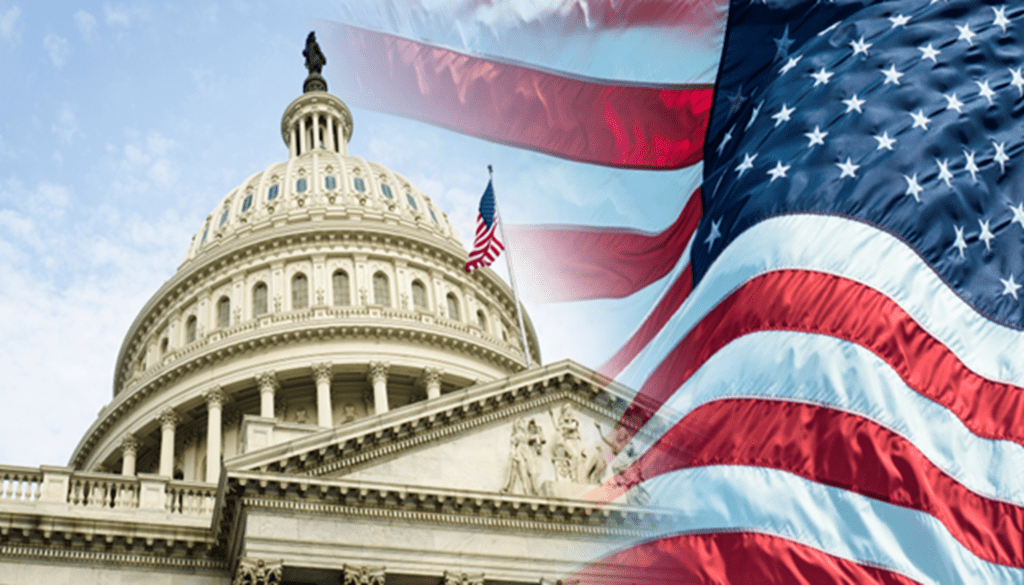
By Peyton Majors
Christian Action League
July 8, 2022
President Biden and Democratic leaders have stated their intention to “codify Roe” nationwide with federal legislation, yet an Elon University law professor counters that such a law would be unconstitutional from the get-go under Supreme Court precedent.
Thomas J. Molony, a law professor at the Elon, N.C., school, wrote in a July 4 Wall Street Journal column that the Constitution “speaks clearly about the limits on congressional power.” Specifically, Molony wrote, Section 5 of the 14th Amendment and the Commerce Clause of Article I prohibit Congress from establishing a federal right to abortion through legislation.
The bill at the heart of the debate — the Women’s Health Protection Act — claims it “supersedes” all state pro-life laws. Further, it says its purpose is to “permit health care providers to provide abortion services without limitations or requirements.” Under the bill, abortion regulations are illegal if they “do not significantly advance reproductive health or the safety of abortion services,” according to the bill’s text.
“The Constitution doesn’t empower Congress to force states to allow abortion against their wishes,” Molony wrote.
Section 5 gives Congress the “power to enforce the 14th Amendment’s Due Process and Equal Protection clauses,” he explained.
“But in City of Boerne v. Flores (1997), the court emphasized that Section 5 wouldn’t permit Congress to alter the 14th Amendment’s substance,” Molony wrote. “The court found that Section 5 wouldn’t permit Congress to impose on states the Religious Freedom Restoration Act’s rigorous test for regulations infringing on religious exercise.” (The text of Section 5 gives Congress the “power to enforce, by appropriate legislation,” the “provisions” of the 14th Amendment.)
The Supreme Court’s Dobbs decision overturning Roe v. Wade, Molony wrote, limits what Biden and Democratic leaders can do. That’s because Dobbs held that the 14th Amendment’s Due Process Clause “doesn’t guarantee women the right to choose abortion.” (The clause prevents states from depriving “any person of life, liberty, or property, without due process of law.”)
Dobbs also “effectively foreclosed Equal Protection challenges to abortion restrictions,” Molony wrote, referencing language in the 14th Amendment that prohibits states from denying citizens the “equal protection of the laws.”
“Thus, with regard to abortion, the Constitution leaves the states with the same broad discretion they have to regulate other aspects of medical practice. Congress can’t use Section 5 to change that,” Molony wrote.

Meanwhile, Supreme Court precedent on the Commerce Clause of Article I also limits what Congress can do on abortion, Molony wrote. (The text of Article I gives Congress the power to “regulate commerce” among the states.)
“The Commerce Clause has limits,” Molony wrote before citing multiple Supreme Court precedents. “In National Federation of Independent Business v. Sebelius (2012), five justices determined that Congress can’t use its commerce power to compel individuals to engage in commerce,” he wrote. “Congress similarly can’t force a state to allow a healthcare provider to offer abortion services on congressional terms. In the License Tax Cases (1866), the court emphasized that ‘the power to authorize a business within a State is plainly repugnant to the exclusive power of the State over the same subject.’ States get to decide whether and to what extent they permit abortion within their borders.”
“In Linder v. U.S. (1925), the court stated that ‘direct control of medical practice in the states is beyond the power of the federal government.’ In Gonzales v. Raich (2005), the court held that Congress could regulate the practice of medicine indirectly ‘as an essential part of a larger regulation’ designed to combat drug trafficking, but these abortion bills attempt to regulate medical practice directly.”
Any federal bill codifying Roe v. Wade, Molony wrote, “would impermissibly encroach on a state’s prerogative to define what is criminal within its borders.”
“Congress may not legalize performing an abortion within a state when the state has decided to punish that conduct as criminal,” Molony wrote. “Legalization isn’t regulation.”
Biden’s previous comments on Covid, Molony said, also apply to federal abortion bills.
“What Mr. Biden said about the Covid pandemic applies to legislating abortion rights: ‘There is no federal solution.’”
“On the federal level, I believe we can be confident in saying there is no longer any right to an abortion. The fight now is on the state level,” said Rev. Mark Creech, executive director of the Christian Action League.
“In North Carolina it means abortion is still legal and will remain so at least under pro-choice Gov. Roy Cooper for the next two years, unless at the next election voters place a supermajority of pro-life legislators in both the state House and Senate. Think of it. Without that supermajority to override any of the governor’s vetoes of pro-life legislation, more unborn children will die, and North Carolina will be a haven for abortion seekers from across the country,” he added.
